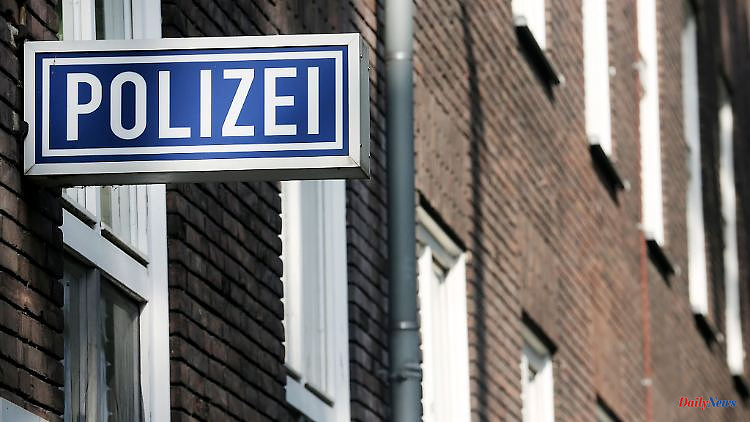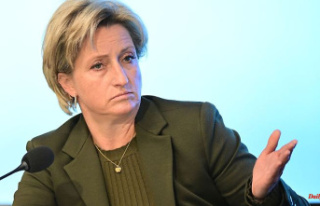Disgraced works of art, blocked roads: climate activists are driving some observers crazy with their protests. The police unions in the country condemn the actions.
Stuttgart (dpa / lsw) - From the point of view of the German Police Union (DPolG), anyone who sticks to the streets in Baden-Württemberg should be able to be locked up in prison for a certain period of time without a trial. Police custody like that in Bavaria is proportionate if you have to reckon with the perpetrator committing the crime again at the next opportunity, union boss Ralf Kusterer told the German Press Agency in Stuttgart. "I think it's a good tool to ward off crime." If politicians were to introduce this in the southwest, they would have the DPolG on their side, said Kusterer. Without the possibility of preventive detention, the hands of the police are tied to a certain extent when dealing with the activists, then you always have to wait until something happens.
According to the Bavarian Police Responsibilities Act, citizens can be detained for up to a month on the basis of a judicial decision in order to prevent the commission of an administrative offense of considerable public importance or a criminal offence. This period can be extended by a maximum of one additional month. In Bavaria, 19 climate activists were recently imprisoned. They were released from police custody over the weekend.
The "last generation" often makes the headlines with their blockade actions or attacks on works of art. The activists want to draw attention to the destruction of the environment and climate change. Kusterer condemned the protests. "These are mostly crimes that happen there," he said. "Anyone who restricts other people's freedom of movement has no sympathy from me." In its effect, this is not a peaceful protest. However, Kusterer also expects a rather temporary phenomenon with a view to the winter. "Even if you put on thick underpants - at some point it gets uncomfortable on the street."
The other police union in the country, the police union, is also more than critical of the protests. "We condemn these actions in the strongest possible terms," said GdP country chief Gundram Lottmann. He understands the intention. But it cannot be that criminal offenses are committed and the infrastructure is blocked. "Our infrastructure is simply the heart of our economy and industry." He also understands if affected citizens react aggressively to the activists. "If you show radical protest, you shouldn't be surprised if the citizens react accordingly," said Lottmann. The police must protect both sides and stand between the chairs.
Lottmann considers police custody to be the last resort in action against the activists. There are certainly radical people who are no longer open to any arguments, he said. But before that, all other options would have to be exhausted in order to find an amicable solution. He sees other problems in connection with police custody like in Bavaria: "We would not have the detention facilities and certainly not the staff," he said. "We couldn't do that."
Activist Solvig Schinköthe, who herself was already in prison for blockade actions, was outraged by the police union's request: "The government can decide at any time to work for all of our lives instead of imprisoning us, the messengers of bad news," she said. "Longer preventive detention will not prevent us from protesting against the deadly business-as-usual of the federal government." Schinköthe criticizes that the tightened law on police duties in Bavaria is supposed to protect society from Islamist terror. "Now this law is being abused to lock up peaceful climate activists. In Baden-Württemberg, too, we will continue to take to the streets peacefully and resolutely to preserve what is dear to us all."












